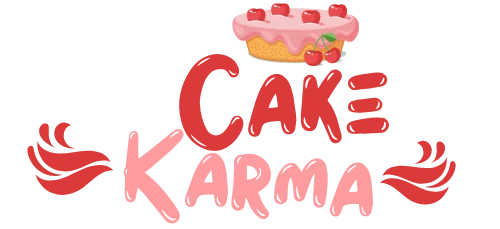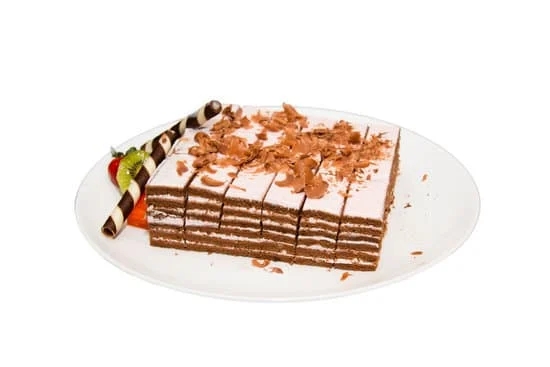What is a cake decorator? A cake decorator is a culinary artist who specializes in the art of creating visually appealing designs on cakes using various techniques and tools. This profession goes beyond simply baking a cake, as it involves the skillful application of decorative elements to enhance the overall appearance and appeal of the dessert.
The role of a cake decorator has evolved over time, from simple buttercream swirls to intricate fondant sculptures and edible masterpieces. As the demand for visually stunning and customized cakes continues to rise, so does the importance of talented and skilled cake decorators who can bring these creations to life.
To become a successful cake decorator, one must possess a unique blend of creativity, precision, and patience. From envisioning intricate designs to meticulously executing them with steady hands, this profession requires attention to detail and a passion for creating beautiful desserts that not only taste delicious but also look impressive. Mastering various cake decorating techniques such as buttercream piping, fondant sculpting, and airbrushing is essential for aspiring cake decorators to excel in this field.
History of Cake Decorating
Cake decorating is an art that has been around for centuries, with its origins dating back to ancient civilizations where cakes were often used in religious ceremonies and celebrations. In ancient Greece, for example, cakes were adorned with fruits and nuts as offerings to the gods. Over time, cake decorating evolved into a more elaborate form of culinary art, with intricate designs and decorations becoming a symbol of wealth and status.
The history of cake decorating took a significant turn during the Renaissance period in Europe, where sugar became more widely available and affordable. This allowed for the creation of intricate sugar sculptures and decorations to adorn cakes, signaling the beginning of modern cake decorating as we know it today. By the 17th century, skilled confectioners were in high demand to create elaborate cakes for royal courts and aristocratic households.
With the Industrial Revolution bringing advancements in technology and mass production, cake decorating tools and techniques continued to evolve. The invention of new piping tips, edible food coloring, and fondant made it easier for bakers and decorators to create stunning designs on cakes. Today, cake decorating has become a popular hobby and profession, with competitions, classes, and online tutorials showcasing the endless possibilities of this creative culinary art form.
- Ancient civilizations use cakes in religious ceremonies
- Renaissance period marked a significant turn in cake decoration
- Industrial Revolution brought advancements in technology
Skills Required to Become a Cake Decorator
Cake decorating is not just about making a cake look visually appealing; it is an art form that requires a unique set of skills. One of the most important skills for a cake decorator is creativity. Creativity is crucial when coming up with designs, color schemes, and themes for cakes.
A cake decorator must be able to think outside the box and create innovative designs that will wow clients and guests. Additionally, precision is key in cake decorating. From measuring ingredients to piping intricate designs, attention to detail and accuracy are essential for producing high-quality cakes.
In addition to creativity and precision, patience is another vital skill needed to become a successful cake decorator. Decorating a cake can be a time-consuming process, especially when working on intricate details or sculpting fondant decorations. Patience is required to ensure that each decoration is perfectly placed and every design element is executed flawlessly. Without patience, it can be easy to rush through the decorating process and compromise the quality of the final product.
Furthermore, being a cake decorator also requires excellent hand-eye coordination and fine motor skills. The ability to handle delicate tools such as piping bags, spatulas, and fondant tools with precision is essential for creating beautiful designs on cakes. Cake decorators often spend hours standing and working with their hands, so physical stamina is also important in this profession.
| Skill | Description |
|---|---|
| Creativity | Ability to come up with unique designs and color schemes for cakes. |
| Precision | Attention to detail and accuracy when measuring ingredients or piping intricate designs. |
| Patience | Ability to stay focused and work carefully on time-consuming tasks such as sculpting fondant decorations. |
Tools of the Trade
Cake decorators rely on a variety of tools and equipment to bring their creative visions to life. These essential supplies are crucial for achieving intricate designs and flawless decorations on cakes of all shapes and sizes.
Piping Bags and Tips
One of the most fundamental tools in a cake decorator’s arsenal is the piping bag. These disposable or reusable bags are used to pipe buttercream, royal icing, ganache, and other decorations onto cakes. Paired with an assortment of piping tips in different sizes and shapes, decorators can create everything from delicate lace patterns to intricate flowers.
Fondant Tools
For decorators who specialize in fondant work, a set of fondant tools is essential. These may include fondant smoothers for achieving perfectly smooth surfaces, rolling pins for rolling out fondant evenly, and various sculpting tools for shaping detailed figurines, flowers, and other embellishments.
Airbrush Kit
An airbrush kit is a versatile tool that allows cake decorators to apply smooth gradients of color, add shading effects, and create stunning finishes on cakes. With adjustable air pressure and interchangeable nozzles, airbrush kits offer precision and control for professional-quality results.
These tools, along with others like offset spatulas, turntables, edible glitters, stencils, and more, allow cake decorators to unleash their creativity and transform simple cakes into works of art that delight the eyes as well as the taste buds. Mastering the use of these tools is key to becoming a skilled and successful cake decorator.
Different Types of Cake Decorating Techniques
Cake decorating is an art form that allows individuals to express their creativity and transform simple cakes into edible masterpieces. There are various techniques and methods that cake decorators use to achieve stunning results, from intricate buttercream piping to sculpting with fondant. Understanding these different types of cake decorating techniques is essential for aspiring cake decorators looking to hone their skills and create visually appealing desserts.
To delve deeper into the world of cake decorating, here are some popular methods used by cake decorators:
- Buttercream Piping: This technique involves using a piping bag and different tips to create intricate designs, patterns, and decorations on cakes. From delicate roses to detailed borders, buttercream piping allows decorators to add a personal touch to their creations.
- Fondant Sculpting: Fondant is a versatile sugar paste that can be rolled out and molded into various shapes and forms. Cake decorators use fondant to cover cakes smoothly, create 3D figures, and design elaborate details such as flowers, bows, or figurines.
- Royal Icing Detailing: Royal icing is a smooth, hard-drying icing that is commonly used for intricate detailing on cakes. Cake decorators often use royal icing to create delicate lace patterns, elegant monograms, or intricate piped designs on cookies and cakes.
Mastering these cake decorating techniques requires practice, patience, and a keen eye for detail. Whether you prefer the precision of buttercream piping or the versatility of fondant sculpting, experimenting with different methods can help you develop your own unique style as a cake decorator. Each technique offers endless possibilities for creating stunning desserts that will leave a lasting impression on anyone who sees or tastes them.
Education and Training
Formal Education
Many aspiring cake decorators choose to pursue formal education in the culinary arts or specifically in baking and pastry arts. These programs typically include coursework on basic baking techniques, as well as specialty courses focusing on cake decorating. Students learn about different types of icing, piping techniques, color theory, and design principles. Some schools even offer internships or externships at bakeries or specialty shops to provide hands-on experience.
Apprenticeships and Work Experience
Another popular option for those looking to become a cake decorator is to seek out apprenticeships or entry-level positions at bakeries or cake decorating businesses. Working under experienced professionals allows individuals to learn the craft from seasoned experts, gaining valuable insight and skills through hands-on practice. This route can be especially beneficial for those who prefer a more practical, immersive learning experience rather than a formal classroom setting.
Online Courses and Workshops
In today’s digital age, there is an abundance of online resources available for aspiring cake decorators. Many reputable institutions and industry experts offer virtual courses and workshops on various aspects of cake decorating, from basic techniques to advanced skills.
These online platforms provide flexibility for individuals who may not have access to traditional educational options or who prefer to learn at their own pace. Additionally, online communities and forums allow aspiring cake decorators to connect with peers, share tips and tricks, and seek feedback on their work.
By exploring these different education and training options, individuals interested in becoming a cake decorator can find the pathway that best suits their learning style and career goals. Whether through formal education programs, hands-on apprenticeships, or online courses, the opportunities to hone skills in this creative culinary art are endless.
Career Opportunities
Cake decorating is a skillful art that requires not only creativity but also precision and patience. The role of a cake decorator goes beyond simply creating visually appealing cakes; it involves understanding different techniques, tools, and ingredients to bring intricate designs to life.
A cake decorator is responsible for transforming simple cakes into culinary masterpieces that can be the centerpiece of any celebration. Whether it’s a wedding, birthday, or any special occasion, a talented cake decorator can truly make an impact with their skills.
Over the years, the art of cake decorating has evolved significantly. What used to be basic frosting and piping has now transformed into a wide array of techniques and styles. From buttercream flower piping to fondant sculpting to airbrushing, there are endless possibilities when it comes to decorating cakes.
With the rise of social media platforms like Instagram and Pinterest, cake decorators have gained even more recognition for their intricate designs and attention to detail. This has led to a surge in demand for skilled cake decorators who can create custom cakes that are not only delicious but also visually stunning.
In terms of career opportunities, cake decorators have a wide range of settings where they can work and showcase their talents. From traditional bakeries to high-end caterers to specialty shops dedicated solely to custom cakes, there is no shortage of places where cake decorators can thrive.
Some may even choose to start their own business and offer personalized cakes for events and celebrations. Whether working in a commercial kitchen or freelance, a career as a cake decorator offers endless possibilities for creative expression and professional growth.
| Career Setting | Description |
|---|---|
| Bakeries | Traditional setting where cake decorators create custom cakes for various occasions. |
| Caterers | Providing services for large events such as weddings, corporate functions, and other special gatherings. |
| Specialty Shops | Dedicated establishments focused on unique and customized cake designs. |
Q&A With a Professional Cake Decorator
Cake decorating is a fascinating and creative art form that has evolved over the years to become a multi-faceted profession with countless opportunities for those passionate about baking and design. From elaborate wedding cakes to whimsical birthday creations, cake decorators bring joy and beauty to special occasions through their skillful craftsmanship. But what exactly is a cake decorator, and what does it take to succeed in this field?
To become a successful cake decorator, one must possess a unique blend of creativity, precision, and patience. Coming up with innovative designs, working with delicate materials like fondant, and mastering intricate piping techniques all require a keen eye for detail and steady hands. Additionally, staying calm under pressure and being able to adapt to unexpected challenges are essential skills for a cake decorator.
In addition to honing their artistic abilities, aspiring cake decorators must also familiarize themselves with the various tools and equipment used in the trade. From piping bags and tips to sculpting tools and airbrush kits, having the right supplies can make all the difference in creating stunning confections.
Furthermore, learning about different types of cake decorating techniques such as buttercream piping, fondant sculpting, and sugar flower making can help aspiring cake decorators expand their repertoire and stand out in the competitive industry.
Frequently Asked Questions
What Is a Cake Decorator?
A cake decorator is a skilled professional who specializes in decorating cakes for various occasions such as birthdays, weddings, and other special events. They are responsible for adding aesthetic elements to cakes using techniques like piping, sculpting, and fondant work.
What Is the Meaning of Cake Decorating?
Cake decorating refers to the art of enhancing the appearance of a cake through various techniques and designs. It involves applying frosting, icing, edible decorations, and other creative elements to transform a plain cake into a visually appealing masterpiece. Cake decorating allows individuals to showcase their creativity and talent while adding a personal touch to baked goods.
What Do Cake Decorators Do Everyday?
Cake decorators have a variety of tasks that they perform on a daily basis. These tasks can include preparing icing and frosting, designing and sketching cake decorations, coloring fondant, sculpting decorative elements, piping intricate designs onto cakes, arranging flowers or other edible decorations, coordinating colors and themes with clients, cleaning workspaces and tools, ensuring cakes meet quality standards, meeting with clients to discuss design ideas or requests, documenting orders and inventory levels of supplies.
Each day brings new challenges and opportunities for cake decorators to showcase their artistic skills and attention to detail in creating beautiful custom cakes for their customers.

Welcome to our cake decorating blog! My name is Destiny Flores, and I am the proud owner of a cake decorating business named Cake Karma. Our mission is to provide delicious, beautiful cakes for all occasions. We specialize in creating custom cakes that are tailored specifically to each customer’s individual needs and tastes.





